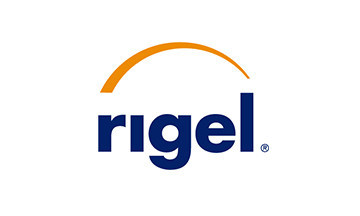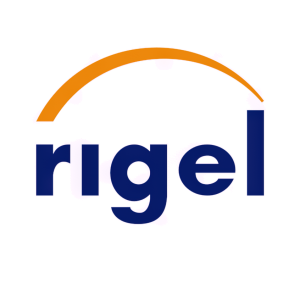Rigel Announces Reverse Stock Split
Rigel Pharmaceuticals announced a 1-for-10 reverse stock split, effective June 27, 2024. This decision will reduce the total outstanding shares from approximately 175.6 million to 17.6 million, aiming to increase the per-share trading price. The reverse split was approved by stockholders on May 24, 2024, and finalized by the Board on June 15, 2024. Post-split, Rigel’s stock will trade under the same symbol (RIGL) and a new CUSIP number (766559702). The reverse split intends to enhance the company’s appeal to institutional investors and maintain Nasdaq listing compliance. No action is required from stockholders who hold shares electronically or in street name; those with physical certificates will receive instructions for the exchange. Fractional shares will be compensated with cash.
- Reverse stock split reduces outstanding shares from 175.6 million to 17.6 million.
- Aimed at increasing per-share trading price to attract institutional investors.
- Helps ensure compliance with Nasdaq's $1.00 minimum bid requirement.
- Reverse stock split may create a negative market perception.
- Risk of stock price decline post-split due to market reaction.
Insights
A reverse stock split is a strategic move often used by companies to increase their stock price and attract institutional investors. By consolidating shares, Rigel Pharmaceuticals (RIGL) will reduce the number of outstanding shares by a factor of 10, effectively increasing the price per share. This maneuver aims to address the issue of the stock trading below
For retail investors, it is important to note that while the reverse split may make the stock more attractive to institutional investors and improve market perceptions, it does not directly change the company's market capitalization or underlying financial health. This can sometimes be seen as a cosmetic change rather than a substantial improvement in the business fundamentals. However, it can improve liquidity and reduce volatility, which might be beneficial in the long term.
The immediate impact on shareholders is neutral to slightly positive, as the total value of their holdings remains the same, though the number of shares they hold will be reduced. The risk here lies in the market's perception of why the company needed to enact the split, which can sometimes be interpreted negatively.
From a market perspective, Rigel's decision to execute a reverse stock split can be interpreted as an effort to enhance its marketability and appeal to a broader range of investors. By increasing the share price, the company aims to shed the image of being a 'penny stock' and meet the listing requirements of institutional investors who often avoid stocks trading under
This move aligns with the company's need to maintain compliance with Nasdaq's listing standards, specifically the minimum bid price requirement. The 1-for-10 ratio suggests Rigel is aiming for a significant boost in share price, ideally positioning itself above the threshold over a sustainable period.
For retail investors, this is a signal that Rigel is taking proactive steps to stabilize its market presence. However, investors should closely monitor post-split trading activity and assess whether the company can sustain the increased share price through operational performance and strategic growth. Historical data shows that reverse splits can sometimes be followed by a decline in share price, contingent on the company's performance post-split.
The legal mechanics of the reverse stock split, as outlined, are straightforward and align with standard corporate governance practices. The fact that the split was approved by shareholders and later ratified by the board of directors ensures compliance with regulatory and fiduciary duties. This is important for maintaining investor confidence and adhering to corporate governance norms.
Investors should be aware that the proportional adjustments to the exercise prices and the number of shares underlying the company's equity plans are standard practices. These adjustments ensure that stock options and other equity incentives remain equitable and unaffected by the reverse split in terms of their economic value.
Additionally, the involvement of Equiniti Trust Company as the exchange agent provides a seamless process for shareholders. The fact that no action is required for shareholders holding shares electronically mitigates any administrative burden, while those holding paper certificates will receive clear instructions. This operational transparency is a positive aspect for all stakeholders involved.
The Reverse Stock Split was approved by the company's stockholders at its Annual Meeting of Stockholders held on May 24, 2024 to be effected by the company's Board of Directors (the "Board") within approved parameters. The final ratio was approved by the Board on June 15, 2024. As a result of the Reverse Stock Split, every 10 shares of the company's pre-split common stock issued and outstanding will be automatically reclassified into one new share of the company's common stock. This will reduce the number of shares outstanding from approximately 175,582,945 shares to approximately 17,558,294, subject to adjustment due to the payment of cash in lieu of fractional shares. Proportionate adjustments will be made to the exercise prices and the number of shares underlying the company's equity plans, as applicable. The Reverse Stock Split will not affect the number of authorized shares of common stock or the par value of the common stock.
The primary objective in effectuating the Reverse Stock Split will be to attempt to raise the per-share trading price of the company's common stock. Rigel believes that the low per-share market price of its common stock impairs the company's marketability to, and acceptance by, institutional investors and other members of the investing public and creates a negative impression of the company. Among other benefits, the Reverse Stock Split will also help the company to maintain compliance with the minimum bid continued listing requirement of
Equiniti Trust Company, LLC, is acting as the exchange agent for the Reverse Stock Split. Registered stockholders holding pre-split shares of the company's common stock electronically in book-entry form are not required to take any action to receive post-split shares. Stockholders owning shares in "street name" or via a broker, bank, trust or other nominee will have their positions automatically adjusted to reflect the Reverse Stock Split, subject to the particular processes of such broker, bank, trust or other nominee, and will not be required to take any action in connection with the Reverse Stock Split. Stockholders holding shares of the company's common stock in certificate form will receive a transmittal letter from Equiniti with instructions as soon as practicable after the effective date. No fractional shares will be issued in connection with the Reverse Stock Split. Stockholders who otherwise would be entitled to receive fractional shares will receive a cash payment in lieu of such fractional shares.
Additional information regarding the Reverse Stock Split is available on the Form 8-K filed today, as well as in the company's definitive proxy statement filed with the Securities and Exchange Commission on April 10, 2024, a copy of which is available at www.sec.gov and on the company's website.
About Rigel
Rigel Pharmaceuticals, Inc. (Nasdaq: RIGL) is a biotechnology company dedicated to discovering, developing and providing novel therapies that significantly improve the lives of patients with hematologic disorders and cancer. Founded in 1996, Rigel is based in
Forward Looking Statements
This press release contains forward-looking statements relating to, among other things, future Rigel stock price, expected market impact on Rigel stock, expectations related to the potential and market opportunity of Rigel stock, the effect of the Reverse Stock Split on marketability to and acceptance by institutional investors and other members of the investing public and impressions of the company in the market, the effect of the Reverse Stock Split on Rigel stock and stockholders, our ability to maintain compliance with the Nasdaq continued listing requirements, and Rigel's future performance. Any statements contained in this press release that are not statements of historical fact may be deemed to be forward-looking statements. Forward-looking statements can be identified by words such as "plan", "potential", "may", "expects", "will" and similar expressions in reference to future periods. Forward-looking statements are neither historical facts nor assurances of future performance. Instead, they are based on Rigel's current beliefs, expectations, and assumptions and hence they inherently involve significant risks, uncertainties and changes in circumstances that are difficult to predict and many of which are outside of our control. Therefore, you should not rely on any of these forward-looking statements. Actual results and the timing of events could differ materially from those anticipated in such forward looking statements as a result of these risks and uncertainties, which include, without limitation, risks and uncertainties associated with our ability to maintain compliance with Nasdaq's continued listing requirements, including the minimum bid price requirement of
Contact for Investors & Media:
Investors:
Rigel Pharmaceuticals, Inc.
650.624.1232
ir@rigel.com
Media:
David Rosen
Argot Partners
212.600.1902
david.rosen@argotpartners.com
![]() View original content to download multimedia:https://www.prnewswire.com/news-releases/rigel-announces-reverse-stock-split-302181180.html
View original content to download multimedia:https://www.prnewswire.com/news-releases/rigel-announces-reverse-stock-split-302181180.html
SOURCE Rigel Pharmaceuticals, Inc.








